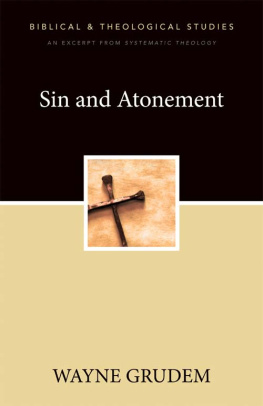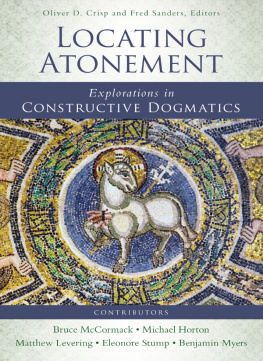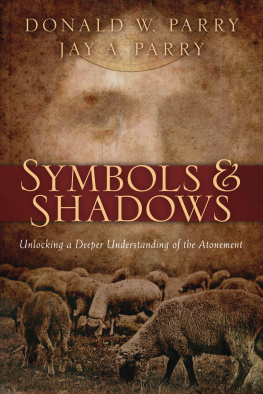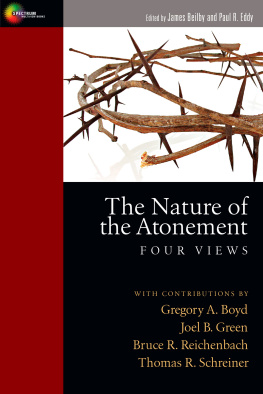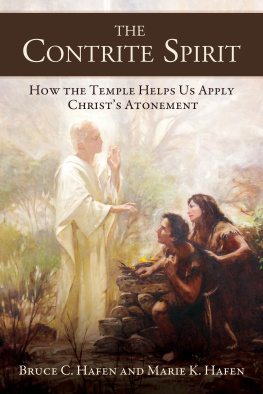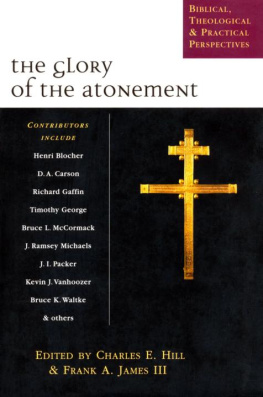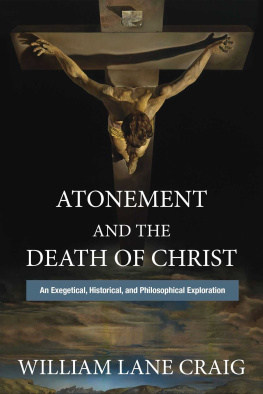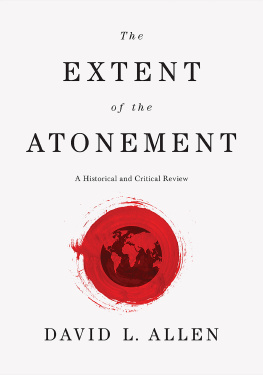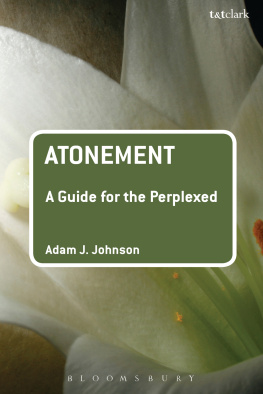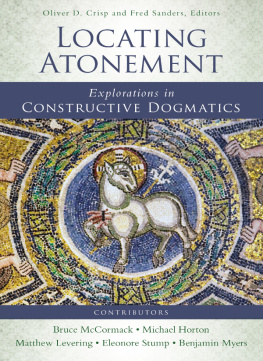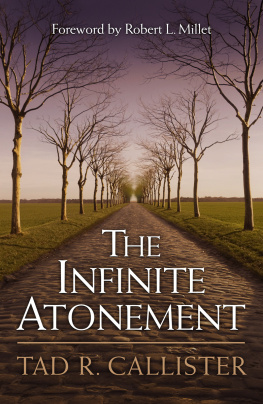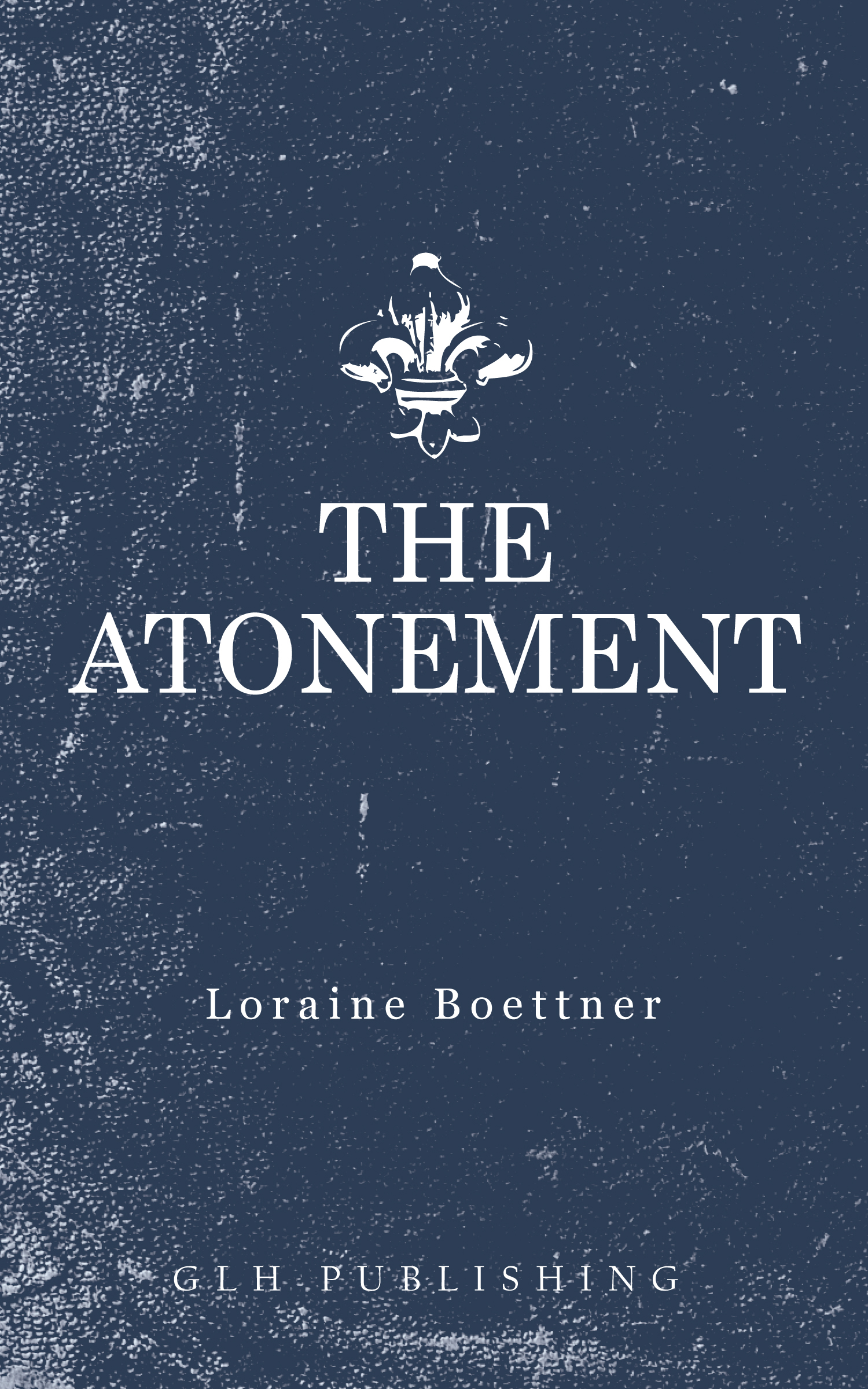The
Atonement
Loraine Boettner
GLH Publishing
Louisville, KY
Originally Published in 1941.
Copyright unrenewed, Public Domain
GLH Publishing Reprint, 2019
Note: An additional footnote has been added to quote that was previously unidentified.
ISBN:
Paperback 978-1-948648-75-2
Epub 978-1-948648-76-9
Sign up for updates from GLH Publishing using the link below and receive a free ebook .
http://eepurl.com/gj9V19
Contents
I. The Atonement
The two great objectives to be accomplished by Jesus Christ in His mission to this world were, first, the removal of the curse under which mankind labored as a result of the disobedience and fall, and second, the restoration of men to the image and fellowship of God. Both of these were essential to salvation. The work of Christ in reconciling God and men we call the Atonement; and this doctrine, we believe, lies at the very heart of the Christian system.
In the nature of the case we are altogether dependent on Scripture for our knowledge concerning this doctrine and can know only what God has seen fit to reveal concerning it. Human philosophy and speculation can contribute practically nothing toward its solution, and should be held in abeyance. Our present purpose is to give a systematized account of what the Scriptures teach concerning it, and to show that this fits in perfectly with the longings and aspirations of an enlightened spiritual nature.
In one of Pauls most condensed statements of Christian truth we read: For I delivered unto you first of all that which also I received: that Christ died for our sins according to the Scriptures; and that He was buried; and that He hath been raised on the third day according to the Scriptures, 1 Cor. 15:3. In this statement first place is given to the death of Christ. Christ died for our sins was the fundamental fact of the early Christian message, the cornerstone of its faith. But as soon as this simple fact is stated a number of vital questions are bound to arise. In order that we may have an intelligent understanding of this vital truth it is necessary that we know precisely what it was that Christ accomplished on the cross and how He did it. We cannot rest content with teaching that leaves the central doctrine of our faith shrouded in mystery and uncertainty. This does not mean that all mystery can be removed. But the Scriptures do supply the interpretation of the death of Christ that the inquiring mind legitimately asks for, and the salient factors concerning it should be known by all Christian people. Believing that the Bible is Gods word to man, and that the statements of Scripture regarding the death of Christ were meant to be understood by ordinary Christian men and women, we shall not be deterred from this study by those who deprecate any theory of the atonement. Rather we hold it to be our task and privilege under the promised guidance of the Holy Spirit to search the Scriptures until we reach that understanding which satisfies the mind and heart and conscience, and leads to certainty and finality.
We cannot expect to give a full explanation of the Atonement any more than we can give a full explanation of the nature of electricity, or of the force of gravity, or of our own mental and physical processes. But the main outlines of the plan of salvation are clearly revealed in the Scriptures, and it is both our privilege and our duty to acquaint ourselves with as much of that plan as God has seen fit to reveal. We are told, for instance, in broad terms that we are members of a fallen race, that God has given His only-begotten Son for our redemption, and that salvation is through Him and not through any works which we ourselves are able to do. Certainly anyone who accepts these facts and acts upon them will be saved. Yet, accepting these facts and acting upon them would appear to represent only a minimum of faith, and God has made it possible for us greatly to enrich and expand our knowledge of the way of salvation if we will but give careful attention to His word.
By way of background for this subject we are to remember that after God had created man He established certain moral laws by which man was to be governed, and solemnly announced that disobedience to these laws would bring an awful punishment. As a pure test of obedience man was given permission to eat of every tree of the garden except of the tree of the knowledge of good and evil. In regard to that tree he was told: In the day that thou eatest thereof thou shalt surely die. But man deliberately and defiantly disobeyed that command. Through that disobedience he not only corrupted his moral nature, but made necessary the infliction of the prescribed penalty. In view of Gods previously expressed good will toward man, the large degree of liberty granted to him, and his full knowledge of the consequences, this disobedience was especially heinous; because through it man in effect transferred his allegiance from God to the Devil.
Moreover, by his fall Adam corrupted not only himself but all of his posterity, since by divine appointment in this test he acted as their federal head and representative. Had man been left to suffer the penalty alone, he would have experienced not only physical death, but spiritual death as well, which means eternal separation from God and therefore endless progress in sin and suffering. Like the Devil and the demons, who also are fallen creatures and who have been abandoned to their fate, man was morally polluted and guilty and had neither the desire nor the ability to reform himself. Furthermore, it is very evident that no member of this fallen race was capable of paying the debt owed by any other, since each one was preoccupied with his own sin. Even if it had been possible to have found a truly righteous man who was also willing to bear the penalty for others, he could at most have delivered but one other person since he himself was only a man. Nowhere outside the Trinity was there a person either capable or willing to take the place of another, no one capable of suffering and dying, the one for the many. Nor had man the slightest grounds on which to base a request that he be excused from the penalty of the law. Hence his condition was truly desperate.
But fortunately for man there was One both able and willing to perform that service. It was for this purpose that the Lord Jesus Christ, the second Person of the Trinity, became incarnate and performed for man a double service, discharging, on the one hand, the penalty through His own suffering and death, and on the other, restoring to man holiness and life through His perfect obedience to the moral law. Thus was redeemed a multitude which no man can number. How appropriate, then, the words of Peter, Ye were redeemed, not with corruptible things, with silver or gold, from your vain manner of life handed down from your fathers; but with precious blood, as of a lamb without blemish and without spot, even the blood of Christ, 1 Peter 1:18, 19. And how appropriate the words of the heavenly songs, Worthy art thou to take the book, and to open the seals thereof: for thou wast slain, and didst purchase unto God with thy blood men of every tribe, and tongue, and people, and nation, and madest them to be unto our God a kingdom and priests; and they reign upon the earth, Rev. 5:9, 10; Blessing, and glory, and wisdom, and thanksgiving, and honor, and power, and might, be unto our God for ever and ever, Rev. 7:12; Great and marvellous are thy works, O Lord God, the Almighty; righteous and true are thy ways, thou King of the ages. Who shall not fear, O Lord, and glorify thy name? for thou only art holy; for all the nations shall come and worship before thee; for thy righteous acts have been made manifest, Rev. 15:3, 4.


